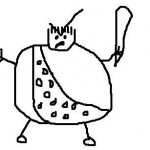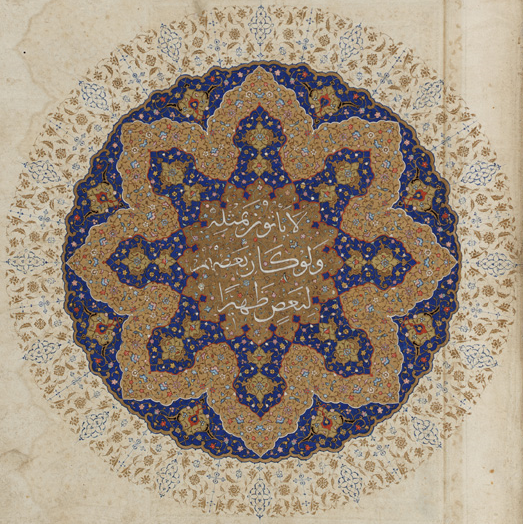
As I wrote in my previous post, the stress on the importance of homemaking in evangelical-fundamentalist culture can produce a really grounded, comforting and peaceful life. But at what cost does that comfort come?
One of the main problems with the evangelical-fundamentalist value of homemaking is that it’s inextricably tied to femininity. To be a homemaker is to be a godly woman. To be a godly woman is to be a homemaker. They’re inseparable. This is a problem for a number of reasons:
- Women who are homemakers are undervalued, because homemaking is seen as something they “just do” naturally because God designed them that way. The learning curve, various skill sets and hard, sometimes backbreaking work are swept under the pastel, floral rug.
- Women who do anything but homemaking are considered immoral, lazy or selfish.
- Men who enjoy cooking, home maintenance or childcare become the objects of “concern” from other men at church over their perceived “effeminacy.”
- Women whose husbands involve themselves in cooking, childcare and cleaning feel inadequate because they “should” be doing it all by themselves.
- Male children grow up having no idea how to take care of themselves.
- Female children have to clean up after their brothers. That’s just not cool, people.
Another significant problem with the evangelical-fundamentalist vision of homemaking is its reliance on financial and marital stability. In other words, it’s an incredibly upper-middle class idea.
Homemaking is not a solitary profession. Unless you’ve come into a huge inheritance, won the lottery, built your house with your bare hands on the land your grandpappy gave you, built a profitable home business breeding chickens and pygmy goats, or been born Martha Stewart, chances are you won’t be financially independent as a homemaker. Homemaking is a profession that must be subsidized by another profession, usually a husband’s. This poses a number of issues for the up-and-coming generation of happy housewives:
- Not everyone can find a suitable partner. You can’t just marry any woman to any man. Think about it: would you want to be the 19 year old girl to “take one for the team” and marry the 67-year-old widower in the church just so you can start homemaking? (I know, the answer is that she should “pray for the Lord to send her a husband.” Please, spare me. I know girls in their thirties who are still waiting, and probably will be waiting in their forties, too.)
- Not every man can find a job. Many families today need all hands on deck. (Hint: it’s the economy, not “feminism”.)
- Some husbands are abusive. Financial dependence on an abuser is not a situation I’d prepare my daughter to get stuck in.
- Some men cheat or leave.
The bottom line is: upholding homemaking as the “highest calling” (in effect, the only calling) for women makes them perpetual dependents, which is a really risky way to live. Also, please spare me the nonsense about preparing girls for “fallback” careers. This is just an excuse used to make fundamentalists seem less sexist and more concerned about the economic prospects of their daughters. The truth is, when a woman in a fundamentalist church is required to “fall back” on a career, she becomes an object of scorn and pity. Women whose husbands beat them are urged to be more submissive, because obviously they must be provoking the attacks. Women whose husbands leave them become social lepers, tainted by “the world” if they go to work and judged for having failed to keep their marriages intact. If the evangelical-fundamentalist community actually believed in educating daughters to be financially independent, it wouldn’t treat women who do find themselves in less than desirable circumstances like they’re unclean. “Headless” women are perceived as threats to the sanctity of the church, presumably because one of them might seduce the pastor in her natural search for hairy-chested leadership.
The feminine ideal of homemaking in evangelical-fundamentalist culture punishes women who cannot find husbands to support them financially. Women who work because they can’t find husbands are treated like dangerous wild animals. The only exceptions are (a) part time jobs that are (b) church-related or babysitting and (c) don’t pay well enough to cause pride or self-reliance, (d) involve skills that are somehow transferable to homemaking and (e) can be dropped at a moment’s notice for a prospective suitor. Women in those situations are also required to be submissive to their fathers.
This post has been mostly about the gender problems associated with the homemaking ideal. I’ll talk more about homemaking and class in my next post, “the ugly.”











